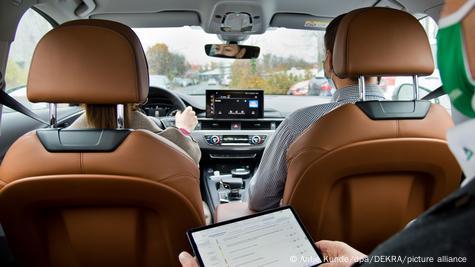Shifting Perspectives on Vehicle Ownership in Germany
As Germany stands at the intersection of environmental duty, urban growth, and economic conversion, the customary practice of driving is facing increasing examination.With fuel prices reaching new heights, strict emissions standards being enforced, and a heightened focus on public transit options, the perception of driving is transitioning from an everyday necessity to a potential luxury. This article investigates how these changes are impacting German society as vehicle ownership costs escalate, urban mobility evolves, and alternative transport solutions gain traction. How are these elements redefining the connection between Germans and their cars? Join us as we explore this critical topic that not only mirrors the shifting mobility landscape in Germany but also raises broader questions about accessibility, sustainability, and transportation’s future across europe.
Escalating Expenses of Vehicle Ownership in Germany
The dynamics surrounding car ownership in Germany are experiencing significant shifts as rising financial pressures led many individuals to reconsider their need for personal vehicles.Insurance costs have surged dramatically; recent data indicates an increase of around 10% over just one year. Additionally, fuel prices have been unpredictable lately, further straining drivers’ budgets. The ongoing shift towards greener technologies has introduced additional expenses—especially with electric vehicle (EV) adoption becoming more prevalent. Consequently, numerous drivers are feeling financial strain that prompts discussions about whether owning a car is evolving into an exclusive priviledge, rather than remaining a common requirement.
The introduction of tolls and congestion fees by local authorities in metropolitan areas aims to alleviate traffic congestion while reducing emissions; however, this only adds to the financial burden faced by vehicle owners. Maintenance costs have also risen significantly alongside other expenses associated with car ownership:
| Expense Category | Averaged Cost (in €) | % Change Annually |
|---|---|---|
| Insurance Premiums | 800€ | +10% |
| Pump Prices (Fuel) | 1500€ | +8% |
| Maintenance Services | 900€ | +5% |
| Tolls/Congestion Fees | 300€ | +15% |
The accumulation of these expenses makes owning a vehicle increasingly daunting for many individuals considering purchasing one.With public transportation systems expanding alongside shared mobility services gaining popularity among users seeking alternatives for travel needs—this transition may signal the dawn of a new era regarding mobility within Germany.
Investigating Alternatives for Sustainable Urban Mobility Solutions
Cities throughout Germany face challenges such as traffic congestion and pollution exacerbated by climate change—prompting them to reassess their transportation strategies actively.
Alternatives to traditional automobile usage are being promoted through innovative policies coupled with infrastructure enhancements. City planners aim not only at broadening public transport networks but also improving non-motorized travel options like cycling or walking initiatives.
programs such as bike-sharing schemes along with pedestrian-amiable zones combined with better access routes for buses/trams have gained momentum recently indicating that possessing an automobile might soon be viewed more like an needless burden rather of essential living requirement within urban settings.
A clearer understanding emerges when examining trends reflecting shifts toward alternative modes: several cities report notable increases regarding usage rates among various transport types:
| Mode Of Transport | Growth Percentage | |
|---|---|---|
| Bicycle sharing Programs 35 % | ||
| Action | Benefit |
|---|---|
| – Subsidized Driving Lessons Increased access low-income individuals </> </> </> </> </> </> </> | . . .




